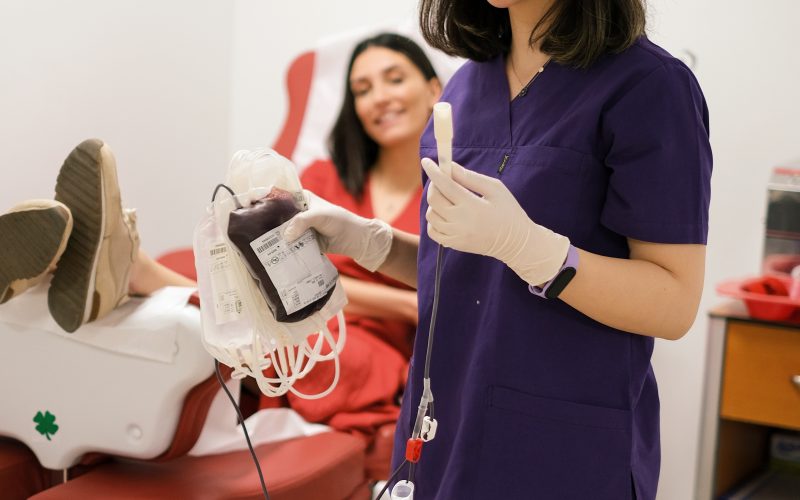Organ donation is a noble act of selflessness that saves countless lives every year. However, the process of organ procurement has come under scrutiny recently as lawmakers demand more transparency from organizations responsible for it. The lack of accountability and clarity in the system has left many unanswered questions about how organs are obtained and distributed. In this blog post, we will delve into why transparency is crucial in organ donation and what actions lawmakers are taking to ensure fair practices by procurement organizations. Join us on this important journey towards creating a more transparent and ethical system for life-saving organ donations.
What is transparency in organ donation?
In the United States, there are two main types of organ donation: deceased donation and living donation. Deceased donation occurs when organs are removed from a person who has died, while living donation occurs when organs are donated by a living person.
There is currently a shortage of organs available for transplantation, and as a result, many people die each year while waiting for an organ. In order to increase the number of organs available for transplantation, some lawmakers have proposed increasing transparency in the organ donation process.
Currently, procurement organizations (POs) are responsible for coordinating the retrieval of organs from donors and matching them with recipients. POs are required to follow certain regulations set forth by the U.S. government, but they also have a great deal of discretion in how they operate. For example, POs can decide which hospitals they work with, what type of information they share with potential donors and their families, and how organs are allocated to recipients.
Some lawmakers believe that increasing transparency in the organ donation process would help to ensure that POs are operating in an ethical manner and making decisions that are in the best interests of patients and families. Specifically, lawmakers have proposed requiring POs to make all donor information available to potential recipients and their families prior to organ allocation. Additionally, lawmakers have proposed prohibiting POs from receiving financial incentives for organ procurement.
Transparency in the organ donation process is an important issue that deserves further discussion and debate. However,
Why are lawmakers demanding answers from procurement organizations?
As the number of people waiting for organ transplants continues to grow, lawmakers are demanding answers from procurement organizations about how organs are being procured and distributed.
There is a growing consensus among lawmakers that the current system of organ procurement is not transparent enough. Many lawmakers feel that they do not have enough information about how organs are being procured and distributed, and they want more oversight of the system.
Procurement organizations have come under fire in recent years for allegedly selling organs on the black market, and there is concern that some organs may not be going to the people who need them the most. There is also concern that some procurement organizations may be paying too much for organs, which could lead to higher healthcare costs for everyone.
Lawmakers are calling for more transparency from procurement organizations so that they can be sure that organs are being procured and distributed in a fair and ethical manner.
What are the benefits of transparency in organ donation?
As the demand for organs continues to exceed the supply, many lawmakers are calling for greater transparency in the organ donation process. They believe that by shining a light on how procurement organizations operate, it will help to increase public trust and confidence in the system.
There are numerous benefits of transparency in organ donation, including:
1) Increased public trust and confidence: As mentioned above, one of the main benefits of transparency is that it helps to increase public trust and confidence in the system. When people see how procurement organizations operate and what goes into making decisions about who receives organs, they are more likely to have faith in the process.
2) Improved allocation of resources: Another benefit of transparency is that it can help to improve the allocation of resources. By understanding how procurement organizations operate, lawmakers and other decision-makers can ensure that organs are being allocated in the most efficient way possible.
3) Greater accountability: Transparency also leads to greater accountability on the part of procurement organizations. When their operations are out in the open, they are much more likely to be held accountable for any mistakes or wrongdoing.
4) Enhanced public education: Finally, transparency can also enhance public education about organ donation and transplantation. When information about the process is readily available, it becomes easier for people to learn about these life-saving procedures and make informed decisions about whether or not they would like to donate their own organs.
What are the challenges of transparency in organ donation?
One of the challenges of transparency in organ donation is that procurement organizations are not required to release information about their donors or recipients. This lack of transparency can make it difficult for potential donors to know if they will be compensated for their organs, and it can also make it difficult for patients who need transplants to find matching organs. Additionally, some procurement organizations have been accused of using organs from executed prisoners without the consent of the prisoners or their families, which has led to calls for more transparency in the organ donation process.
How can transparency in organ donation be improved?
In recent years, lawmakers have begun to demand more transparency from procurement organizations regarding organ donation. Some believe that the current system is not transparent enough, and that there is room for improvement.
One way to improve transparency in organ donation is by increasing public awareness of the process. Currently, many people are unaware of how organs are procured and donated. By increasing public awareness, lawmakers hope to increase transparency and accountability within the system.
Another way to improve transparency is by increasing oversight of procurement organizations. Currently, these organizations operate with little oversight from government agencies. By increasing oversight, lawmakers hope to ensure that procurement organizations are adhering to best practices and regulations.
Finally, lawmakers are also working on legislation that would require procurement organizations to be more transparent in their operations. This legislation would mandate thatprocurement organizations disclose more information about their donors and recipients, as well as the terms of their contracts. This would allow for greater transparency and accountability within the system.
Conclusion
Transparency in organ donation is an important issue that lawmakers are taking seriously. The need for accurate information about how and where organs are sourced, as well as the conditions under which they are stored and transported, is of paramount importance to ensure ethical and safe practices. Procurement organizations must be held accountable for their actions to ensure the safety of all involved in the organ donation process. With greater transparency comes improved public confidence in procurement organizations, furthering our efforts to improve access to life-saving transplants worldwide.












